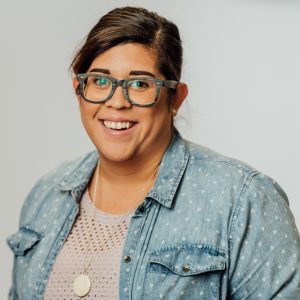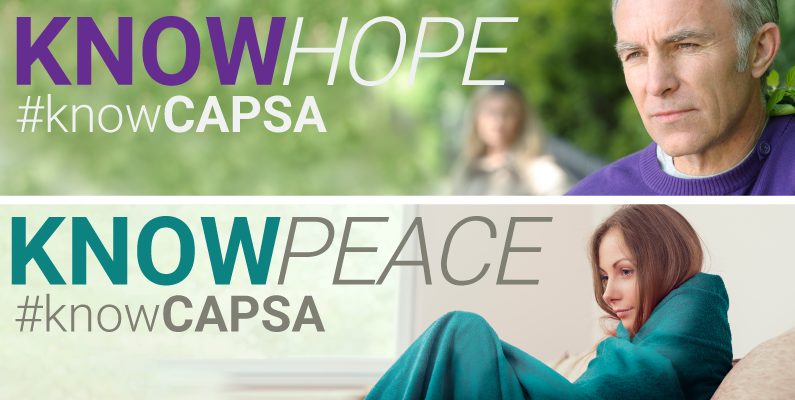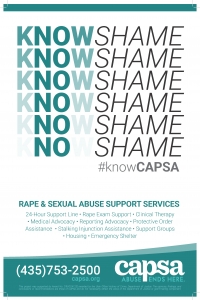
Most of us probably haven’t heard of NUVPEC, but it stands for the Northern Utah Violence Prevention Education Coalition. To learn more about it, I interviewed the coalition chair, Ana Hernandez.
Q. Can you tell me the history of NUVPEC – when and how it was started?
A. In 2009, CAPSA’s prevention department completed a curriculum for male and female peer-to-peer discussion groups. At that time, CAPSA employees felt it was important to create a coalition. It was called the Northern Utah Violence Prevention Education Coalition in order to address prevention efforts at the community level.
Our mission as a coalition is to reduce the incidences of sexual violence among youth in Cache County. The Northern Utah Violence Prevention Education Coalition aims to provide professional, respectful, sensitive and age appropriate prevention education to youth of all ages. NUVPEC will unite to implement developmental assets with an emphasis on positive values, social competencies and positive identities to help our future generations establish healthy, responsible and caring relationships.
Q. Who’s involved in NUVPEC?
A. Several organizations sit on NUVPEC: The Family Place, Alpha Chi Omega, the Logan Police Department, the Cache County’s Sheriff’s Office, Utah State University, Cache Makers, Pregnancy for Choices, the Department for Children and Family Services, Utah State’s Sexual Assault and Anti-Violence Information Office, Intermountain Healthcare, the Bear River Health Department and concerned citizens.
Q. What is NUVPEC doing in our community – what are the positive results you can point to from the program?
A. We hope that we are making a difference by raising awareness of domestic and sexual violence within our youth. Currently, we have several projects in the works.
Upstanding Youth Leadership Conference: Hosted at Utah State University on December 2, we have worked tirelessly with the Utah State Health Department and CAPSA to put this conference together. It is targeted specifically for Cache and Rich youth leaders, and we are hoping that by providing training by Marty Liccardo and other helpful workshops youth will be able to go back to their respective communities and teach their peers about making a difference and changing social norms.
Media Contest: Every year from January to the end of February the state of Utah holds a Media contest surrounding healthy relationships. This contest is for students, and NUVPEC participates by informing all the Middle and High School students about the contest and its theme.
Safe Dates: We partner with the Logan Police Department and the Fun Park to create an environment for youth to have fun while gaining an understanding of how to stay safe on a date and what to do if you feel uncomfortable at any portion of a night out.
Q. How are youth involved in NUVPEC?
A. NUVPEC raises awareness and holds events specifically for our youth. Members of the CAPSA Youth Council also help educate their peers with a member of NUVPEC.
Q. How does NUVPEC inspire and create youth leaders?
A. I hope that by making a difference the youth can see that they too can make a difference. A lot of times youth, and even adults, feel that in order to make a difference they have to be labeled as a leader. However, you do not have to be in any type of position (although it can be helpful) to make a difference and rise to inspire and be a leader.
Q. What have you learned from chairing NUVPEC?
A. When I started, I met with each member individually and listened to their concerns, ideas, and successes with the intention of making the coalition better. So far, I have been able to include more members from our community. I am also reaching out to the Latino community in hopes of bringing awareness to them,as well. I realize that although I am not perfect, I have learned that by showing others that I am human, that I care and that I am there to help them make a difference we become more united and are able to achieve more.
Q. What are the long-term goals of NUVPEC?
A. I want to continue inspiring youth to become the leaders of tomorrow. I also want to reach out to more community organizations and involve them in order to bring more awareness to families, and specifically youth.



